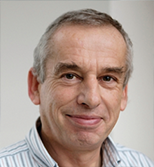Associação Portuguesa de Investigação em Cancro
Public Benefit of Cancer Research - ASPIC
Public Benefit of Cancer Research - ASPIC

The recently created Portuguese Association for Cancer Research (ASPIC) had a first Conference in November 2013. The Conference, on “Public Benefit of Cancer Research”, took place in Fundação Calouste Gulbenkian, in Lisbon, and in Fundação Eng. António de Almeida, in Porto. Leonor David, President of ASPIC, gave public account on the situation of ASPIC, created in February 2013 and affiliated to EACR on the same month. In March the website – www.aspic.pt – was opened to the public and established itself within the community in Portugal and abroad. ASPIC has more than 100 members and is programming the 1st ASPIC congress in 2014. The first invited keynote speaker, Nic Jones (Chief Scientist, Cancer Research UK, Director, Manchester Cancer Research Centre and Senior Group Leader, Paterson Institute for Cancer Research), gave a talk on “The Patient and Public Benefits of Cancer Research: A Cancer Research UK perspective”. The second keynote speaker, Julio Celis (Associated Scientific Director of the Danish Cancer Society Research Center in Copenhagen, Chairman of the Policy Committee at the European CanCer Organisation (ECCO) and Vice-President of the Alliance for Biomedical Research in Europe), gave a talk on “European Cancer Research: Shaping the future through solid science and strategic partnerships”. In Lisbon, members of the ASPIC boards, Fátima Cardoso (Fundação Champalimaud) and Luis Costa (IMM and Faculdade de Medicina de Lisboa) and of the Scientific Council (Manuel Abecasis and José Mariano Gago) leaded the session and discussion. In Porto, board members Carmen Jerónimo (IPO-Porto and ICBAS) and Fátima Balazar (Universidade do Minho) and Scientific Council member Manuel Sobrinho Simões, led the session. Both in Lisbon and in Porto institutional representatives and the scientific community participated in the discussion on the relevant issue of public awareness and support for cancer research sustained activities. Feed-back from attendees is supportive of ASPIC activity on promoting policy meetings apart from the biennial scientific congresses.
Fundação Calouste Gulbenkian,
Lisbon, November 12, 2013 - 17.00
Fundação Eng. António de Almeida,
Porto, November 13, 2013 - 17.00
Keynote Speakers
 | Nic Jones: Chief Scientist, Cancer Research UK Director, Manchester Cancer Research Centre Senior Group Leader, Paterson Institute for Cancer Research
Professor Nicholas Jones obtained his BSc in Microbiology at University College London in 1971 and completed a PhD at the University of Edinburgh in 1974 focusing on the link between DNA replication and cell division. His first post-doctoral position took him to the United States and to the University of Connecticut Medical School studying bacterial cell division. In 1978, at Purdue University, Indiana, he set up his own research laboratory. He returned to the UK in 1985 to join the Imperial Cancer Research Fund in London. He became director of the Paterson Institute as Director from 1999- 2011 and continued Group Leader of the Institute’s Cell Regulation Laboratory. Nic Jones was appointed as Chief Scientist of Cancer Research UK in February 2011 and is also Director of the Manchester Cancer Research Centre (MCRC), established in 2006. | |
 | Julio Celis: Associated Scientific Director of the Danish Cancer Society Research Center in Copenhagen Chairman of the Policy Committee at the European CanCer Organisation (ECCO) Vice-President of the Alliance for Biomedical Research in Europe.
Generally recognized as one of the founding fathers of proteomics, Julio E. Celis did his biochemistry studies in his home country, Chile, and then his PhD at the University of Iowa. In 1975, Julio Celis went to Denmark and his group in Aarhus University introduced the use of protein identification techniques to map HeLa cell proteins and developed the first protein database in 1981. The group also laid out the foundations for proteomics. Julio Celis is currently Chairman of the Policy Committee of the European Cancer Organisation (ECCO), Vice-President of the European Alliance for Biomedical Research and Associate Scientific Director of the Danish Cancer Society Research Center. In the recent past Julio Celis served in major initiatives and organizations, such as President of the European Association for Cancer Research (EACR), member of the board of the Organisation of European Cancer Institute’s (OECI), member of the FP7 Advisory Group of Health Research and Director of the Institute of Cancer Biology at the Danish Cancer Society. |
«Public Benefit of Cancer Research» - Lisbon
Tuesday, November 12 17.00 – 19.00
Fundação Calouste Gulbenkian, Auditorium 3
Program:
17.00-17.15 – Opening
Director, Fundação Calouste Gulbenkian, Prof. Doutor Jorge Soares
17.15-17.30 – Launching ASPIC – Portuguese Association for Cancer Research
Leonor David
Session chaired by Fátima Cardoso
17.30-18.00 - The Patient and Public Benefits of Cancer Research: A Cancer Research UK perspective
Nic Jones, UK (Introduced by Manuel Abecasis)
18.00-18.30 - European Cancer Research: Shaping the future through solid science and strategic partnerships
Julio Celis, Denmark (Introduced by José Mariano Gago)
18.30-19.00– General Discussion chaired by Luís Costa, Nic Jones and Julio Celis
«Public Benefit of Cancer Research» - Porto
Wednesday, November 13 17.00 – 19.00
Fundação Eng. António de Almeida, Auditorium
Program:
17.00-17.15 - Opening
President of Fundação Eng. António de Almeida, Drª Eugénia Aguiar-Branco
17.15-17.30 – Launching ASPIC – Portuguese Association for Cancer Research
Leonor David
Session chaired by Fátima Baltazar and Carmen Jerónimo
17.30.18.00 - The Patient and Public Benefits of Cancer Research: A Cancer Research UK perspective
Nic Jones, UK (Introduced by Fátima Baltazar)
18.00-18.30 - European Cancer Research: Shaping the future through solid science and strategic partnerships
Julio Celis, Denmark (Introduced by Carmen Jerónimo)
18.30-19.00– General Discussion chaired by Manuel Sobrinho Simões, Nic Jones and Julio Celis
Sessions will take place at Auditorium 3 of Fundação Gulbenkian (134 seats) and auditorium of Fundação Eng. António de Almeida (280 seats). Entrance to the sessions is free and no registration is required.






